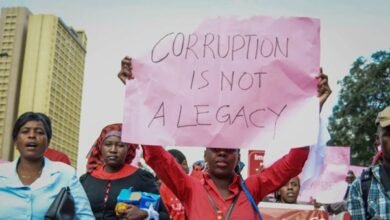The impacts of a global economic crisis triggered by the pandemic, climate change, and conflict in Ukraine have exacerbated uncertainty. However, the large scale and speed of this change presents significant opportunities for African countries and investors, according to the latest report by global specialist risk consultancy Control Risks and Oxford Economics Africa.
By M.A.
Africa’s GDP grew by an estimated 6.9% in 2021, revealing positive forward momentum. However, the after-effects of the COVID-19 pandemic and the Russia-Ukraine war are projected to impact the African continent’s economic outlook for many years. In 2021, about 22 million jobs were lost due to the pandemic, with 30 million people being pushed into extreme poverty. An additional 1.8 million people could be added to this number by 2022.
Increased costs, supply chain disruption, and climate change have exacerbated the continent’s food crisis. In addition, anti-government sentiment is already rising across Africa, as governments are seen failing to address socio-economic challenges.
Yet, according to Control Risks’ Africa Risk-Reward Index, this year’s risk-reward scores paint a picture of a continent at an inflection point. The report details the changing investment environment in key African markets and provides a documented, long-term perspective on key trends shaping investment in African economies.
“Many countries have and will exploit their fossil fuels while also developing their focus on renewables”
In the context of climate change, and as the COP 27 is held in Africa, more precisely in Egypt, the issue of renewable energy becomes central. Opportunities exist in the energy sub-sectors (renewable energy, oil and gas, hydrogen) and along the entire value chain (extraction, development, production, transmission, distribution, export). Governments are welcoming investors, the report notes.
“The energy transition in Africa needs to be staggered; many countries have and will exploit their fossil fuels while also developing their focus on renewables. Countries with high LNG potential, such as Angola, Mozambique, Tanzania, and Nigeria, will see sustained investor interest, and conversations around ending flaring will be important to watch,” says Patricia Rodrigues, Senior Analyst at Control Risks.
Food security: “technological developments in the fintech and agricultural sectors and progress on AfCFTA could catalyse the development needed”
Despite African countries having committed in 2019 to speed up regional integration under the African Continental Free Trade Agreement (AfCFTA), these challenges are prevalent. Most of Africa’s agriculture-related activity is subsistence; where it is not, getting food from farm to end-consumer is costly. A large infrastructure deficit in transport and power remains a key obstacle to addressing these challenges.
“Given the continent’s dependence on rainfed agriculture and susceptibility to climate change, in the context of a global shift towards shoring-up national food security, the situation could deteriorate further. Addressing this issue will require public and private investment in storage & warehousing, agro-processing, agricultural infrastructure, and financial services. Technological developments in the fintech and agricultural sectors and progress on the AfCFTA could catalyze the development needed,” says Jacques Nel, head of Africa macro at Oxford Economics Africa.
Read the report :https://www.controlrisks.com/campaigns/africa-risk-reward-index






